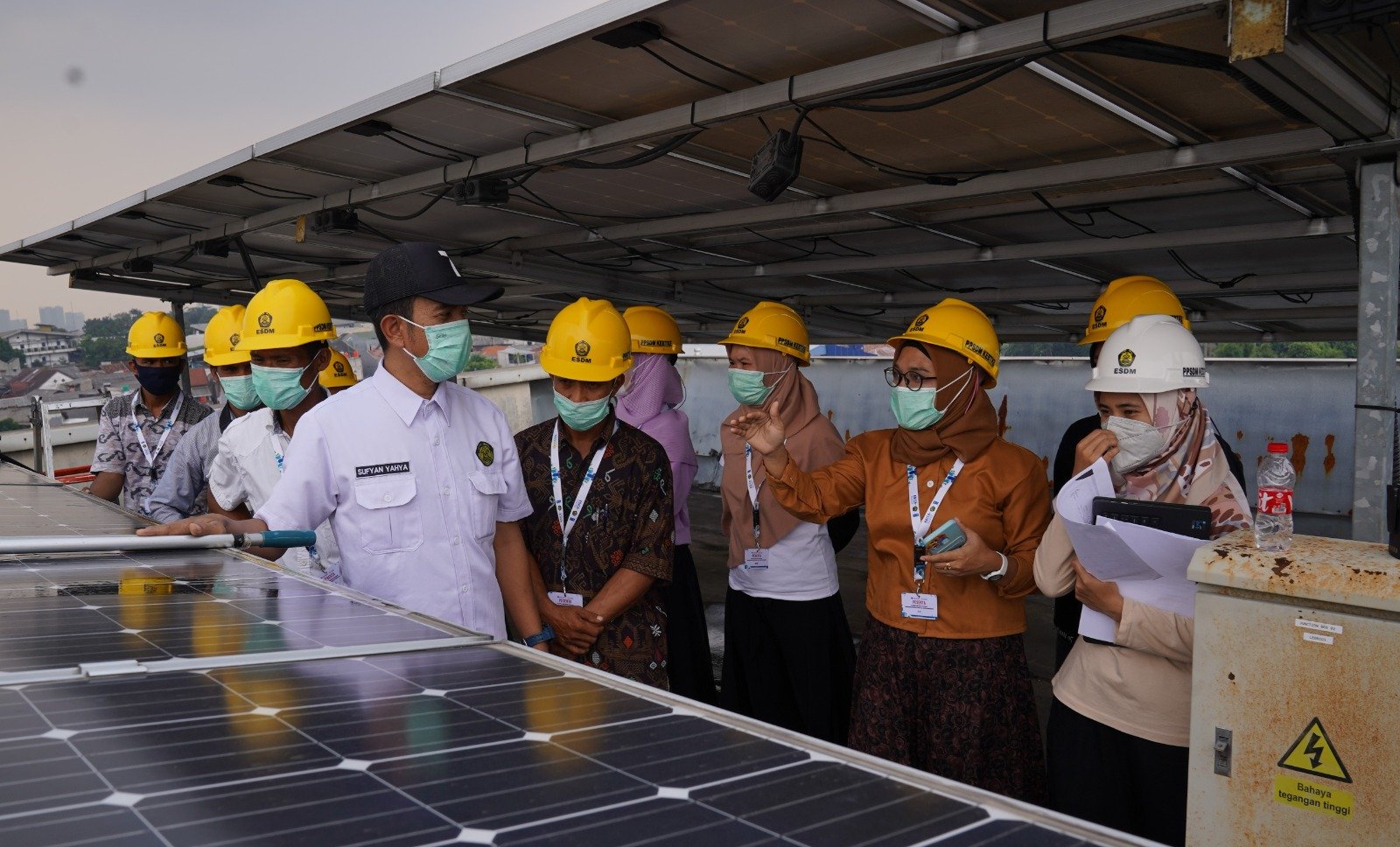
The ACCESS Project Supports the Urgent Energy Transition
Energy is a crucial necessity in life. Activities related to education, the economy, society, and other aspects rely on energy for smooth functioning. Unfortunately, to this day, fossil fuels still dominate the national and international energy supply, including oil, natural gas, and coal, which will eventually be depleted.[1]
Based on predictions of fossil energy reserves as of 2021, Indonesia's oil and natural gas reserves are estimated to last only for the next 9.5 and 19.9 years, respectively. This is based on 2020 reserve data, with oil production and natural gas production reaching 700,000 barrels of oil per day (BOPD) and 6 billion standard cubic feet per day (BSCFD), respectively, assuming no new discoveries of oil and natural gas reserves.[2]
Negative Impacts of Fossil Fuel Usage
In addition to being non-renewable, the use of fossil fuels results in the emission of Greenhouse Gases (GHGs), leading to air pollution, global warming, climate change, and various environmental damages. In 2021, global GHG emissions from the energy sector reached their highest point, amounting to a 6% increase. Furthermore, the global average temperature has risen by 1.1°C compared to the period between 1850 and 1900.[3]
Global warming has caused climate change, which adversely affects life on Earth. Some negative consequences of climate change include more frequent forest fires, intensified destructive storms, an increase in drought cases in various regions, rising sea levels and temperatures, species extinction, food shortages, health risks, and an increase in poverty and displacement.[4] This is a serious global issue that requires immediate attention.
Renewable Energy can Reduce GHG Emissions
In addition to providing clean energy needs, renewable energy plays a significant role in reducing GHG emissions. In 2021, Indonesia managed to reduce GHG emissions in the energy sector by 69.5 million tons of CO2, with a significant portion achieved through the utilization of renewable energy (43.7%). The reduction was also achieved through energy efficiency measures (21%), the use of low-carbon fuels (17.3%), the application of clean power generation technology (13.5%), and other activities (4.5%). Therefore, transitioning to the use of renewable energy is crucial.
ACCESS Project Supports Net Zero Emission Commitment
The President of the Republic of Indonesia, Joko Widodo, has stated that Indonesia will achieve Net Zero Emission (NZE) by 2060 or even sooner.[5] To achieve this goal, various policies and renewable energy power plant projects have been initiated, such as the construction of Solar Power Plants (PLTS) by the UNDP ACCESS Project. The PLTS project is underway in 23 villages across four Indonesian provinces (East Nusa Tenggara, Southeast Sulawesi, West Sulawesi, and Central Kalimantan), with a total capacity of 1.2 MWp.
The UNDP ACCESS Project is not only involved in building PLTS but also considers other sustainability aspects. These include preparing local operators responsible for the installation and maintenance of PLTS, enhancing the technical capabilities of local operators through training and consultation, establishing local renewable energy service enterprises, and more. The project aims to ensure that the PLTS installations continue to operate sustainably and provide benefits to the surrounding communities.
Involvement of All Stakeholders is Essential
The use of renewable energy has a substantial positive impact on every aspect of life. Hence, support, synergy, and collaboration among various parties, including government institutions, organizations, businesses, academics, and the general public, are essential in the transition to renewable energy. Through such efforts, Indonesia is expected to achieve its energy transition and emission reduction targets, which will benefit not only Indonesia but the world as a whole.
Author: Dawam Faizul Amal
References:
- Kementerian Energi dan Sumber Daya Mineral (KESDM), “Capaian Kinerja Sektor ESDM Tahun 2021 & Rencana 2022,” 2022.
- Kementerian Energi dan Sumber Daya Mineral (KESDM), “Menteri ESDM: Cadangan Minyak Indonesia Tersedia untuk 9,5 Tahun dan Cadangan Gas 19,9 Tahun,” Jan. 19, 2021. https://www.esdm.go.id/id/media-center/arsip-berita/menteri-esdm-cadangan-minyak-indonesia-tersedia-untuk-95-tahun-dan-cadangan-gas-199-tahun (accessed Mar. 20, 2023).
- United Nations, “The Sustainable Development Goals Report,” 2022.
- Perserikatan Bangsa - Bangsa Indonesia, “Apa Itu Perubahan Iklim? ,” 2023. https://indonesia.un.org/id/172909-apa-itu-perubahan-iklim (accessed Mar. 20, 2023).
- Kementerian Energi dan Sumber Daya Mineral (KESDM), “Masa Transisi Energi Menuju Net Zero Emission,” Feb. 19, 2022. https://ebtke.esdm.go.id/post/2022/02/21/3091/masa.transisi.energi.menuju.net.zero.emission?lang=id (accessed Feb. 16, 2023).
